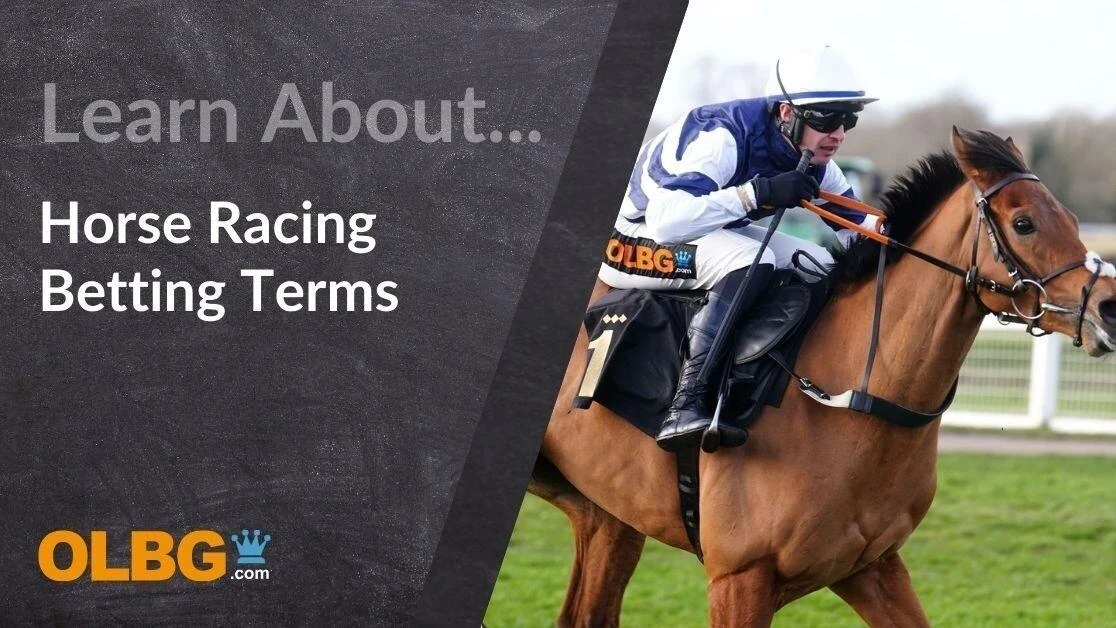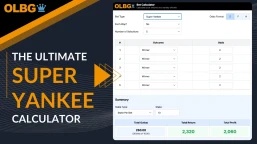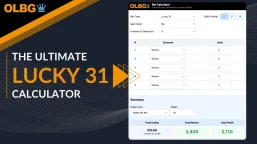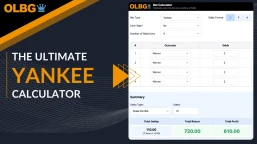
You know how punters get lost in too much data or bet blindly? I break down the stats and trends so you can feel confident you’re betting with more than just gut instinct.
Get off on the right hoof with our comprehensive horse racing betting terms guide.
In this article, we arm you with a definitive list of terms and abbreviations used in horse racing.
Whether you are a novice or a seasoned gambler, understanding this lingo will bring you one step closer to the winners’ circle.
Benefit from our expertise and then take advantage at the newly designed free bets pages.

List of Horse Racing Terms and Abbreviations
Enjoy our complete A-Z of Horse racing abbreviations and terms you may find in the form book, race cards, and on the best betting sites .
Conquer Horse Racing Betting: Terms Every Punter Should Know! 🏇💡
Act
A term for a horse that performs well on a particular type of ground. E.g. The horse is expected to act well on the advertised soft ground.
All Out
When a horse is putting in maximum effort.
Allowance
A weight allowance is given when horses of a certain age race against older horses or when an apprentice rider is on board.
Also Ran
A horse that is out of the first three or four and finished unplaced.
All Weather Surface
An artificial surface which is either Polytrack or Tapeta.
- Polytrack: Chelmsford, Kempton and Lingfield.
- Tapeta: Newcastle Southwell and Wolverhampton.
In Ireland, Dundalk is the only All Weather course (Polytrack), some tipsters specialise in betting on the All Weather.
Amateur
A non-professional jockey who does not receive a riding fee. Specific races are only for amateur jockeys; the race title will highlight this. The jockey on the racecard will also be titled by the prefix Mr, Mrs, Miss.
Ante Post
Betting on a race well before the day of the event that includes all possible runners. Ante Post bets that fail to take part will be counted as losers.
Apprentice
A young jockey who gains a weight allowance over more experienced jockeys. The weight allowance decreases as the jockey gains more victories.
At The Post
Where horses gather just before the race starts.
Backward
A horse that is not fit enough or developed enough to do itself justice.
Banker
A horse that you expect to win.
Bar
The shortest of the odds not mentioned in a betting summary or forecast.
Best Turned Out
The horse judged to be the best looking in the paddock. This is often awarded by sponsors of the race rather than experts, cash is often given to the groom/handler of the best turned out horse.
Best Odds Guaranteed (BOG)
A bookmaker promotion offered by many firms whereby you take a price on your selection and if it starts the race at a bigger price you get paid out at those increased odds.
Betting Ring
The area of a racecourse where most of the on course bookmakers congregate.
Black Type
A horse receives ‘black type’ if it finishes in the first three in a listed or group race. Important for breeding considerations.
Bit
The bit is attached to the bridle and controls the horse's mouth and head.
Blanket Finish
A close finish where plenty of horses are vying for victory.
Blinkers (b)
A device fitted to a horse's head which restricts it's field of vision in order to help it's concentration in the race.
First Time Blinkers (b1)
If the horse is sporting blinkers for the first time a 1 will appear next to the b that shows the horse is declared to wear blinkers.
Brought Down (BD)
When a horse falls or trips over one of the horses in front.
Bloodstock
Horses bred to compete in horse racing.
Boxed In
When a horse is surrounded by horses with nowhere to go.
Bridle
A horse that is on the bridle is yet to be asked for an effort.
Bumper
A national hunt race run over the flat (no hurdles or fences). The most prestigious of these in the UK is the Cheltenham Champion Bumper.
Chaser
A horse that competes over National Hunt fences.
Claiming Race
A horse race where all the horses competing can be "claimed" (bought) by other owners or trainers
Claimer
A limited experienced jockey that gets a weight allowance. The allowance of weight varies depending on how many winners they have ridden
Colt
A colt is a male horse normally under four years old that has not been castrated.
Conformation
The physical appearance of a horse.
Course and Distance (C&D)
C&D or CD next to a horse denotes the horse has already won over that distance at that course. If the C D is separated it means the horse has won at that course and over that distance but not over that distance at that course, meaning the horses win(s) at that course came over a different distance.
Checked
When a jockey pulls the reigns for an instant to avoid a serious collision with another horse.
Cheek Pieces (p)
Head gear worn by horses to help performance.
First Time Cheek Pieces (p1)
If the horse is sporting cheek pieces for the first time a 1 will appear next to the p that shows the horse is declared to wear cheek pieces.
Clerk Of The Scales
The official responsible for ensuring all jockeys weigh in correctly at the end of a race.
Co Favourite
A favourite who is joint favourite with at least two other horses.
Computer Straight Forecast (CSF)
The dividend paid for obtaining the forecast in a race (first and second in the correct order).
Dam
The female parent of a horse.
Dead Heat
When two or more horses’ finishing positions cannot be separated by the minimum winning margin (a nose).
Declarations (Decs)
A list of horses due to run in a race. They are most commonly early declarations (more than 5 days before the race), 5 day declarations (a shortlist of horses likely to run in the race) and final declarations (the full list of horses that will take part, either 48 or 24 hours before the race).
Distance
The margin of victory that individual horses beat each other by.
Dividend
The return to a £1 stake from a selected bet.
Draw
The number of the stall that a horse is allocated in flat racing. These are predominately drawn at random. Depending on the course layout, the draw can offer a considerable advantage/disadvantage to a horse's chances of winning the race.
Drifter
A horse that is weak in the betting market and "drifts" to a bigger price.
Each Way (EW)
A bet on a horse to place as well as win. Place terms depend on number of runners and type of race.
Fell or Faller (F)
A horse that falls at a fence will receive the note of F in the formbook.
Favourite
The shortest priced runner in the field and the most likely winner in the eyes of the bookies.
Filly
A Filly is a female horse under four years old. Some races are only open to Filly's
First String
When a trainers has more than one horse running in a race the runner who has the best form or is most fancied is referred to as his first string.
Foal
When a horse is born it is a foal, this term is used up until January 1st the following year. A horse could be born in January or September but once we have a new year the horse becomes a Yearling.
Front Runner
A horse that likes to lead throughout a race.
Furlong
Standard distance unit in racing. A furlong is equal to 200m (201.1m to be precise) and there are eight furlongs in a mile.
Gallop
The training grounds for horses that are being prepared to run in a race. A horse is often referred to as "going well on the gallops"
Gelding
A male horse that has been castrated.
Genuine
A horse that will give it’s jockey maximum effort when asked.
Going
The condition of the ground at a racecourse. The going ranges from heavy to firm.
Green
Running excitedly and uneconomically associated with inexperience.
Hacked Up
A horse winning a race easily with the minimum of effort, "the horse hacked up".
Hood (h)
A form of headgear designed to assist nervous or anxious horses when running.
First Time Hood (h1)
If the horse is sporting a hood for the first time a 1 will appear next to the h that shows the horse is declared to wear a hood.
Hampered
A horse is hampered when another runner gets too close and costs another runner momentum.
Handicap
A handicap is a race where horses carry different weights based on their official numerical rating.
Handicapper
The British Horse Racing Authority official who allocates the numerical rating and the weight to be carried by the horse.
Handicap Rating
A horse is given a official numerical rating after three runs. This rating is its handicap "mark" and it moves up and down the ratings based on how it performs on the track.
Handy
A horse that takes a handy position will be near the lead.
Hanging
A horse that ‘hangs’ when running drifts off a true line. This usually happens when pressure is applied to the horse and can sometimes be a sign the horse is finding the ground too firm or it can just be a quirk.
Head (hd)
A head is a distance a horse can be beaten by another and is denoted with hd in the formbook.
Held Up
A horse that is held up spends the majority of a race near the rear of the field before being asked for an effort.
Hunter Chase
A hunter chase is a race run over fences only open to horses that have hunted for at least 4 days that season. Hunter chases will usually be contested by older horses.
In May every season Stratford racecourse holds the Champion Hunters Chase.
Hurdler
A horse that competes over smaller obstacles (hurdles as opposed to fences).
In Foal
A mare is described as in foal when she is pregnant and some mares will still race in this condition and it often brings about an improved performance.
Joint Favourite
One of two horses who are at the head of the market for a race.
Jolly
Another name for the favourite.
Juvenile
A two year old horse. A horse born anytime in 2020 will become two years of age on the 1st January 2022.
Judge
Official at the racecourse who declares the winner of the race and the finishing order of the horses.
Last Time Out (LTO)
Refers to the previous race of a horse.
Length
The measurement of a horse from head to tail. This measure separates horses from each other at the finish of a race, e.g. The horse won by a length from the second horse, with the third horse half a length behind.
Level Weights
As opposed to handicaps, where horses carry different weights, the most prestigious races are run with all the horses carrying the same amount. An example of this would be the Epsom Derby.
Maiden
A horse that is yet to win as race. Most horses will lose their maiden tag in maiden races, which can only be contested by horses who have not yet won.
Mare
A mare is a female horse over four years old. OLBG as a company sponsored the Cheltenham Festival Mares Hurdle for many years.
Nap
When a punter or tipster selects his best bet of the day, it is called a nap.
Next Best (Nb)
A tipsters second best bet of the day.
Neck (nk)
A neck is a distance a horse can be beaten by another and is denoted with nk in the formbook.
Non Runner
A horse that was originally declared to run but is no longer participating.
Non Runner No Bet (NRNB)
Non-Runner No Bet - Bet on an ante-post market where the stake is returned in the event of a non-runner.
Nose (nse)
A nose is the shortest distance a horse can be beaten by another and is denoted with nse in the formbook.
Not Travelling
A horse is described as not travelling or not travelling well when it is struggling to keep the pace and has to be ridden earlier than anticipated by the jockey.
Novice
In jumps racing a novice is a horse that at the start of the season had not won a race in it’s particular code of race (hurdles or chases).
Nursery
A flat race only open to 2 year olds.
Off The Bridle
When a horse is not travelling well and having to be ridden along to keep pace with the other horses in the race it is said to be off the bridle.
On The Bit
A horse that is yet to be asked for any effort from the jockey.
Overweight
An eventuality where the jockey weighs more than the weight one of his rides is supposed to carry.
Pulled Up (P)
When the jockey decides to end a horse’s race prematurely due to suspected injury or getting too far behind. This will be denoted by a P in the formbook.
Pari Mutuel (PM)
A tote style betting system used in France (the only betting system in France). Many will use the PM on the biggest race in France the Group 1 Prix de l'Arc de Triomphe.
Penalty
Extra weight that a horse has to carry due to a recent win.
Photo Finish
A method of deciding a race when it is too close to call for the naked eye.
Placed
Usually refers to a horse that finished in the first three. Four places are only paid in handicaps with 16 or more runners and two places are paid when there are between 5 and 7 runners.
Precocious
Can refer to a horse as being talented or developed beyond it’s years.
Prominent
If a horse takes a prominent position in a race it races near to the lead.
Quirky
A horse is described as quirky when it displays certain characteristics such as not enjoying hitting the front, hanging across the course or generally not seeming a genuine tryer.
Rag
The complete outsider in a field.
Ran Out (RO)
A horse that ‘runs out’ takes the wrong course or goes through the barriers and is therefore disqualified. Denoted by RO in the formbook.
Refused To Race (RR)
Some horses refuse to take part in a race. Denoted by RR in the formbook.
Rule 4 (R4)
A reduction in odds on bets placed before a certain time due to a fancied runner being withdrawn. The more fancied the runner, the bigger the rule 4 deduction.
Schooling
This is effectively teaching a horse how to race, most commonly associated with teaching them to jump obstacles. If a horse is considered to have schooled well at home it has been working well at home.
Short Head (shd)
A short head is a distance a horse can be beaten by another and is denoted with shd in the formbook.
Silks
The colours worn by a jockey.
Sire
The male parent of a horse.
Starting Price (SP)
The price of a horse when the race starts broadly based on an average of the on course bookmakers odds for the horse.
Stallion
A male horse that has not been castrated and is often used for breeding.
Stewards Enquiry
An investigation into on goings in a given race. Can result in place reversal or jockey suspensions.
Spread A Plate
When a horse loses a shoe prior to the start of a race, it is said to have spread a plate.
SP
Starting Price, the prevailing odds of each horse prior to the start of a horse race.
Steeplechasing
A horse race over fences (bigger obstacles) as opposed to hurdles.
Thoroughbred
Specifically bred for horse racing was the Thoroughbred horse.
Tissue
A tissue is a betting forecast designed to predict the odds of each runner in an event.
Tongue Tie (t)
A breathing aid used on horses that has a strip of cloth to stabilise the tongue and stop it from sliding over the bit.
First Time Tongue Tie
If the horse is sporting a tongue tie for the first time a 1 will appear next to the t that shows the horse is declared to wear a tongue tie.
Top Weight
The horse carrying most weight in the race, this runner will be number 1 and the weights decrease as you look down the race card for each race.
Tote
The Tote is a system that settles bets based on dividends rather than set prices.
Trip
An alternative term for the distance of the race.
Unseated (U)
When a horse loses it’s jockey without actually falling it is referred to as unseating. Unseating most commonly occurs just after landing after jumping a fence and is denoted by a U in the formbook.
Unexposed
A horse that is described as unexposed is deemed to still have plenty of improvement left.
Visor (v)
A device fitted to a horse's head which restricts it's field of vision in order to help it's concentration.
First Time Visor (v1)
If the horse is sporting a visor for the first time a 1 will appear next to the v that shows the horse is declared to wear a visor.
Valet
The Valet prepares all the jockeys equipment before each race.
Walkover
A race where there is only one runner left after a number of non runners.
Weighed In
The weighing in process involves checking the rider raced with the correct weight. When a winner has weighed in the result is 100% confirmed. Failure to weigh in correctly results in disqualification.
Weight Cloth
The method used to make up the difference between the jockey's weight and the weight the horse is supposed to carry.
Whip
The foam padded whip is restricted to safety and encouragement. The whip can only be used a maximum number of times during the race, 6 on the flat and 7 over jumps.
Wind Operation
A regular procedure to aid the horses breathing.
Yard
A trainers premises.
Yearling
A horse that is in it’s second calendar year of life and is too young to race yet.
Yielding
A going description used in Ireland to describe ground that is on the soft side.
If there are any horse racing terms or abbreviations you are unsure about that aren’t covered above let us know and we will add them. Alternatively check out the Betting Terminology A-Z guide to see if it is included there.
If anyone needs a term clarified please do ask using the contact form at the bottom of the page.
FAQ
Horse Racing Terms FAQ
How many racecourses are there in the UK
There are 59 racecourses in the UK, which include three in Wales and five in Scotland.
How Many Race meetings are there in an average week
Racing takes place every day In the UK, there are generally between 25 and 30 meetings, with most on a Saturday.
How many races are there each day
This varies, but at the beginning of the week, it would be around 20 races, building to Saturday, which may have over double that number of races.
How many racecourses are there in Ireland
There are 26 racecourses in Ireland.
Which races make up the classics
The five Group 1 Classics, which all run over the flat, are as follows:
Month Course Race Distance May Newmarket 1000 Guineas 1 Mile May Newmarket 2000 Guineas 1 Mile June Epsom Oaks 1 Mile 4 Furlongs June Epsom Derby 1 Mile 4 Furlongs September Doncaster St Leger 1 Mile 6 Furlongs What are the most prestigious National Hunt Races
There are 39 Grade 1 National Hunt races with the most famous the Cheltenham Gold Cup run in March.
The Grand National run in April at Aintree has the biggest prize money.
What is a Rule 4
Rule 4 refers to a deduction made from the winnings of a bet when there is a non-runner. Rule 4 deductions adjust the odds on the remaining horses in the race, as the race is now less competitive with the non-runner. The size of the deduction depends on the odds; a shorter-priced horse that is a non-runner will see a larger deduction than a bigger-priced horse that is a non-runner.
Responsible Gambling
You should always gamble responsibly, and never spend more than you can afford.
Horse Racing Betting markets are volatile and prices can fluctuate numerous times.
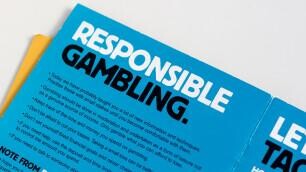
Responsible Gambling Features, Function and Help
Editorial Information
The Horse Racing Betting Terms: Ultimate Guide was collated from industry sources, OLBG Horse racing experts, and member contributions. We have checked the British Horse Racing Authority website to add any relevant new terms. Individual bookmakers have been referred to where necessary to ensure the accuracy of betting contributions. Our meet the experts will revisit regularly to provide any new information for the guide. This article was written and fact-checked by Nigel Skinner. The report was edited and published by Steve Madgwick.
